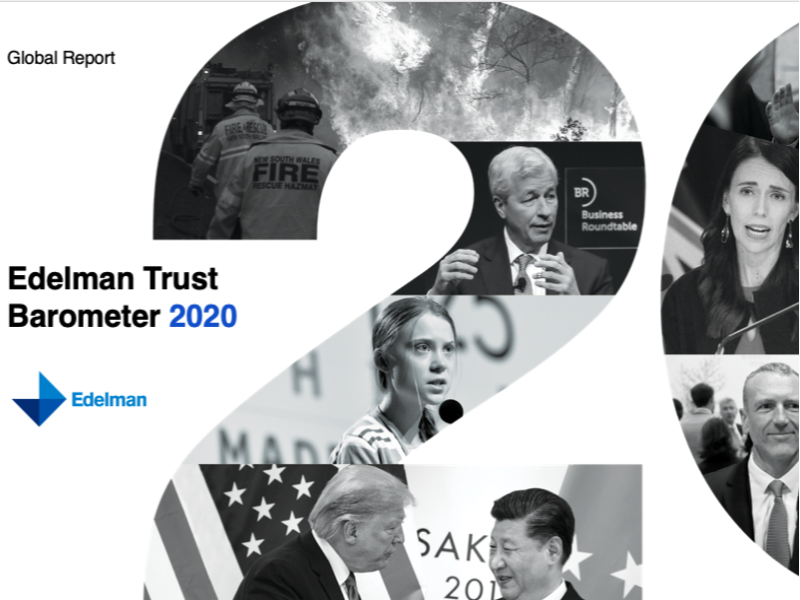Diana Marszalek 20 Jan 2020 // 7:27AM GMT

NEW YORK — Despite a strong economy and low employment, the 2020 Edelman Trust Barometer finds the future is looking bleak to a majority of respondents in developed countries, who don’t believe they will be better off in five years than they are today.
According to the 20th annual survey of 34,000 respondents in 28 markets, the pessimism permeating developed markets (which include the US, much of Western Europe and Asian markets including Japan and Hong Kong) is largely fueled by a growing sense of inequity, raising fears about not being prepared for the future.
“We are living in a trust paradox,” said CEO Richard Edelman. “Since we began measuring trust 20 years ago, economic growth has fostered rising trust. This continues in Asia and the Middle East but not in developed markets, where national income inequality is now the more important factor in institutional trust. Fears are stifling hope, as long-held assumptions about hard work leading to upward mobility are now invalid.”
The dispiriting outlook spans geography, however. 56% of all Trust Barometer respondents, which includes Africa, the Middle East, South America and Asia, don’t trust capitalism in its current form — so much so that they believe it is doing the world more harm than good.
Meanwhile, 83% of employees around the world are worried about losing their jobs due to a range of factors including automation, cheaper foreign competition and immigration among others, and 61% believe the pace of change in technology is too fast.
In turn, the majority of respondents in 21 of the 28 countries fear being left behind, with 57% of total participants saying they are worried about losing respect and dignity at home.
76% of participants said they worry that fake news is being used as a weapon — a six-point lift from last year. All of which points to a larger trend of eroding trust in institutions — government, the media, NGOs and business.
For the first time, business is seen as the most trusted institution by 58% of respondents. Government, NGOs and the media are the other three that were ranked. Last year, employers were ranked most trusted by 79%.
"Business has leapt into the void left by populist and partisan government,” said Edelman. “It can no longer be business as usual, with an exclusive focus on shareholder returns. With 73% of employees saying they want the opportunity to change society, and nearly two-thirds of consumers identifying themselves as belief-driven buyers, CEOs understand that their mandate has changed.”
CEOs are expected to lead from the front. 92% percent of employees say CEOs should speak out on issues of the day, including retraining, the ethical use of technology and income inequality. Three-quarters of the general population believe CEOs should take the lead on change instead of waiting for government to impose it. None of the four institutions is seen as both competent and ethical.
Business registered highest in competence, while NGOs lead on ethical behavior, both of which far outrank government. 73% of respondents believe business can take actions that will yield a profit and benefit the communities in which it operates.
While government is perceived as both incompetent and unethical, it is trusted more than twice as much as business to protect the environment and close the income inequality gap. Media is also viewed as incompetent and unethical; 57% don’t believe the media does a good job of differentiating opinion and fact.


































.jpg)


















